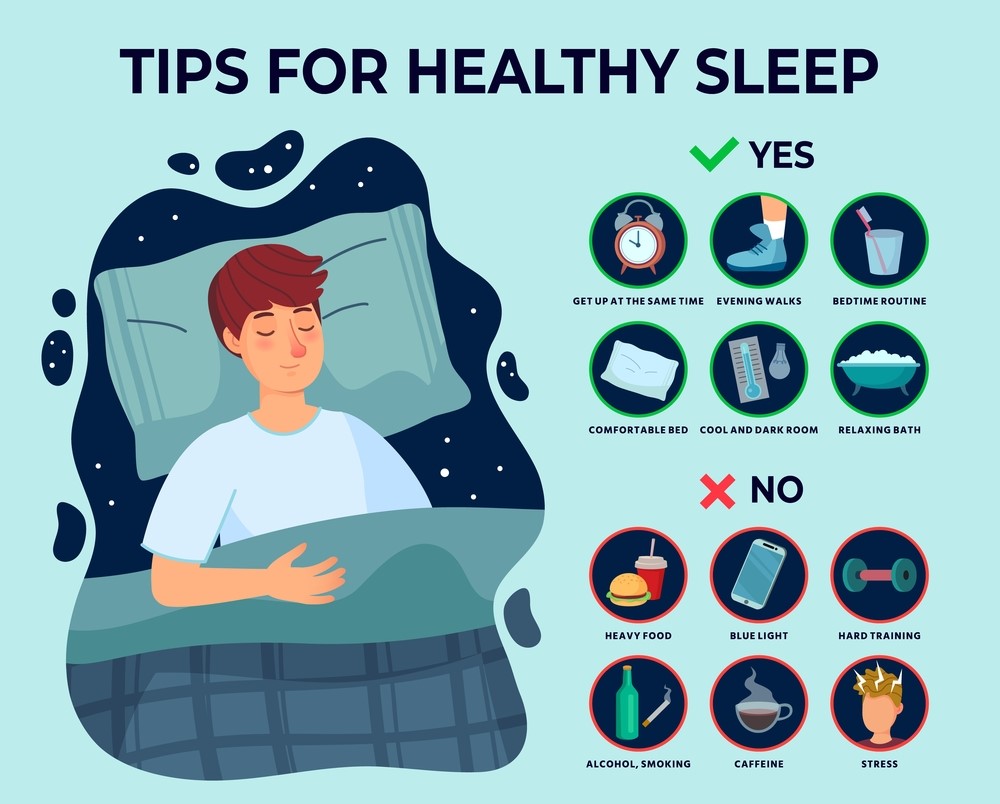
The Power of Sleep: Unleashing the Healing Potential of Rest
Do you ever feel like no matter how much sleep you get, you still need more? You wake up exhausted and lack the energy to do anything productive during your day. If so, you’re not alone – millions worldwide are experiencing the same thing! But what if there was more to getting quality rest than just logging a certain number of hours in bed? In this blog post, we’ll explore the power of proper sleep hygiene practices and uncover its potential to unleash healing within our bodies. So if you want to learn how sleeping can be used as an internal medicine cabinet for restoring health, then read on!
Simply put, your body needs sufficient rest
Sleep is a natural and essential rest that our bodies require daily. It involves a complex series of physiological processes that allow our brains and bodies to recharge and repair. During sleep, our bodies produce hormones that help with growth and repair, and our brains consolidate memories and process emotions. Not getting enough sleep can have serious physical and emotional health consequences, including decreased immune function, increased risk for chronic diseases, and mood disorders such as anxiety and depression. Therefore, we must prioritize getting enough quality sleep to support our overall well-being.
The impact of poor sleep cycles on mental health
Getting enough sleep is essential for our overall well-being, but what happens when we fail to get quality sleep? Poor sleep cycles significantly impact mental health, and the effects can be profound. Sleep disorders such as insomnia, sleep apnea, and restless leg syndrome can lead to fatigue, irritability, and difficulty concentrating. Over time, the chronic sleep deprivation that results from these conditions can contribute to anxiety, depression, and other mental health issues. Our bodies and minds struggle to function properly without enough restful sleep, and our emotional and cognitive functioning can suffer. It is crucial to acknowledge the importance of sleep and take steps to improve our sleep quality to preserve our overall mental health.
The effects of sleep deprivation on cognitive functioning and productivity
Sleep is one of the most important things our body requires to function effectively. After all, a good night’s sleep helps recharge our brain, promoting cognitive health and allowing us to perform during our waking hours. However, consistently getting less than the recommended amount of sleep can have serious consequences, particularly regarding cognitive function and productivity. Some of these consequences could be experiencing lapses in attention and memory, difficulty with decision-making, and reduced creativity. As a result, sleep deprivation can negatively impact productivity, making it even harder to accomplish tasks promptly and efficiently. Therefore, it’s crucial to prioritize getting enough rest as part of our daily routine to promote better cognitive functioning and productivity.
Unhealthy habits can affect quality sleeping patterns
A good night’s sleep is essential for maintaining good health, but certain unhealthy habits can interfere with quality sleeping patterns. For starters, using electronic devices such as laptops and smartphones before bedtime can disrupt sleep patterns due to blue light exposure. Further, consuming caffeine or alcohol close to bedtime can lead to restless and disrupted sleep, leading to fatigue and irritability the next day. Unhealthy eating habits, such as consuming large meals or spicy foods before bedtime, can also lead to discomfort and disrupted sleep. Finally, irregular sleeping schedules, such as staying up late and sleeping in on weekends, can interfere with the body’s natural circadian rhythms, causing difficulty in falling asleep and waking up in the morning. By avoiding these unhealthy habits, we can improve the quality of our sleep and lead a more energized and productive life.
Research-backed methods to improve sleep health
Getting a good night’s sleep is essential for optimal health and well-being, but improving sleep can be difficult for some. The good news is that there are research-backed methods to help improve sleep health. One approach is to establish a consistent sleep routine, going to bed and waking up at the same time daily. Another method is to create a relaxing sleep environment, such as keeping the bedroom dark, cool, and quiet. Additionally, avoiding caffeine and electronic devices before bedtime can aid in falling asleep faster and staying asleep longer. By implementing these methods, individuals can improve their sleep health and wake up refreshed and energized.
The power of restorative rest in restoring general wellbeing
Restorative is one of the most underrated aspects of our overall well-being. We often underestimate the impact of taking time to rest and recharge, but the benefits are profound. Slowing down, disconnecting from our busy lives, and allowing our bodies and minds to rest can transform our physical and mental health. From reducing stress and anxiety to improving our immune system and concentration, prioritizing restorative rest can be a game-changer for our general well-being. So next time you’re feeling overwhelmed or drained, consider taking a break and giving yourself the gift of rest – your body and mind will thank you.
In a world where stress is ever-present, prioritizing quality sleep is more important now than ever. Doing so can have numerous benefits to both physical and emotional health. Sleep quality fluctuates for many of us, but we can rest well and reap the rewards with the right tools and knowledge. It starts with simply being aware of your sleep patterns and committing to healthier habits to improve overall well-being. A good night’s rest is essential to regain our equilibrium and balance, so take charge of your nights and ensure you get the sleep you deserve!







